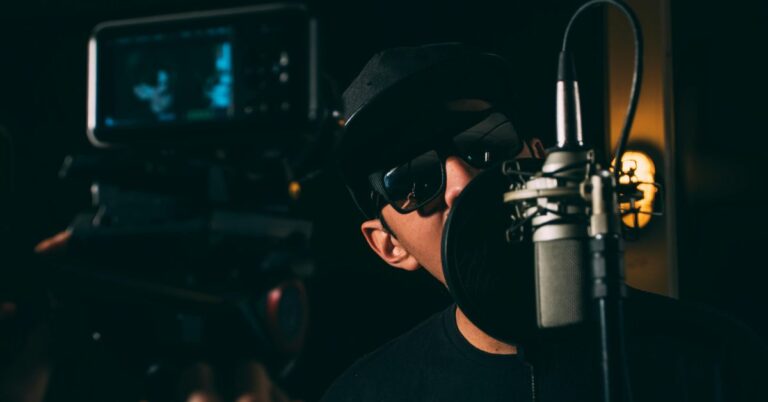The music industry is not defined anymore by large studios, shiny contracts, or high-budget projects. Digital platforms have leveled the topography of the business and enabled new voices to resound across distances free from traditional backing. One signed to a large label may reach the same audience as an artist making beats in a bedroom. Online streaming, social discovery tools, and real-time audience interaction now determine musical success faster than ever before. Algorithms respect authenticity over heritage, and sometimes visibility is only a well-placed sound sample or live session away. Once a game of access, consistency, quality, and community definition, progress now defines this place. Online algorithms honoring innovation and enthusiasm have supplanted the gatekeepers. This shift has made the industry avenue where fresh voices blossom and fan bases grow organically, thereby altering what it means to arrive on the scene.
Licensing Gold: Music Directors Looking Beyond Labels
Music directors are increasingly exploring unconventional approaches when seeking songs for movies, TV shows, advertisements, and video games. Unusual, emotionally charged music that big label catalogs occasionally overlook appeals to them. With this shift, sync licensing among the most successful gateways offered to independent musicians has become more accessible. Music supervisors looking for music now search for new talent through curated sync libraries, artist-first music platforms, and even niche genre filters on streaming services. For young artists, this implies that visibility goes beyond mere existence. A song turned into a nicely named library or uploaded on a self-curated YouTube channel can land up in a Netflix original or a national ad campaign. Sync collaborations provide not only financial help but also great exposure, usually resulting in long-term business ties. The need for diverse, unique music has made this industry one of the most easily accessible for new artists who know how to present their work for licensing prospects.
The Creator Economy has changed the route of employment.
In the music business, conventional paths used to be straight and limited—write, record, perform, pitch to a label, and wait for approval. Today, the creative economy toppled that system. Artists may create completely self-sustained careers free from gatekeepers using sites like Patreon, Twitch, TikHub, and Bandcamp. New income sources, including live streaming advice or subscription-based access to exclusive material, have created ongoing financial flows not possible 10 years ago. Fans are active participants who support and fund the material they find important directly, not just consumers. This change lets artists create commercially and build a community without sacrificing ownership. Rising musicians are turning side projects into profitable enterprises with access to analytics, engagement tools, and tailored marketing strategies, thereby proving that the new music economy values agility and originality much more than connections or money.
Worldwide Reach using Local Sounds.
Successful new artists are leaning into hyperlocal sounds instead of forcing themselves into global pop molds, and it’s paying off. Audiences want authenticity, and music grounded in distinct ethnic, linguistic, or regional components is spreading faster than ever. Streaming platforms’ algorithmic architecture encourages uniqueness and regional appeal, which is why songs in lesser-known languages or infused with native rhythms often top viral charts. A song may be relevant wherever it is English-language or produced for a global audience. The tremendous reach of the internet lets a folk song from Nairobi, a drill beat from Berlin, or a lo-fi single from Jakarta appeal to hearts in places the artist has never set foot. Using one’s roots sets the music and appeals to world cultural interest. This openness has let everyone, wherever they are, be eager to preserve their individuality instead of following trends onto the stage.
Independent Platforms Are Redefining Success
Big labels still exist, but their impact on who “makes it” is no longer wholly unqualified. Changing the rules are independent labels, record distributors, and artist service providers. These platforms provide tailored solutions, allowing artists to retain creative control while having access to tour support, royalties tracking, playlist pitching, and marketing. Companies like AWAL, Ditto, and UnitedMasters provide technologies that let independent musicians operate like full-service businesses without sacrificing ownership or style. They bridge the gap between freedom and professionalism by offering open offerings that enhance long-term growth over instant benefits. From a limited number of giant corporations, this shift is transferring power to an expanding network of artist-first ecosystems. This implies more offers, direct audience relationships, and the option to launch careers on their terms for upcoming musicians. Under this new paradigm, ability and business sense take center stage over legacy and connections.
Listeners, Not Radio, Shape Success
Direct interaction with fans is one of the main elements determining success in the modern music industry. Live conversations, comment sections, and user-generated content have replaced traditional gatekeepers like radio DJs and music critics. Artists can build narratives, generate buzz, and share works-in-progress through real-time interactions with followers on platforms like TikHub, Instagram, and YouTube. Behind-the-scenes films, viral challenges, and fan-generated remixes create an always-changing feedback loop between the artist and the listeners. Participating in the creation process, fans are more likely to support a song and raise its profile. Usually, editorial playlist placements and media attention follow from the natural momentum produced by this degree of engagement. By making fans co-authors of the voyage instead of simply passive watchers, musicians are encouraging lifelong commitment and turning visibility into something shared rather than just broadcast.
Conclusion
The paths into music have become more varied, independent of airtime or executive direction. Emerging musicians may lead with integrity, having direct access to audiences through technology. The game has changed; already, one can hear the bold voices.

